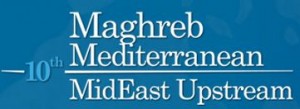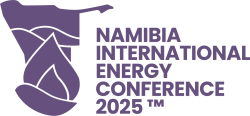 27 March 2013, PARIS, France — With oil prices and production still going up, North Africa and the Greater Middle East remain the key anchor area in the world’s oil and energy markets and will continue to shape the dynamics of the global upstream industry. Which new discoveries and production developments, gas-LNG finds, state oil/gas policies and investment and expansion opportunities are to be expected in the world’s richest hydrocarbon zones will be revealed during the 10th Maghreb, Mediterranean, MidEast Upstream Conference 2013.
27 March 2013, PARIS, France — With oil prices and production still going up, North Africa and the Greater Middle East remain the key anchor area in the world’s oil and energy markets and will continue to shape the dynamics of the global upstream industry. Which new discoveries and production developments, gas-LNG finds, state oil/gas policies and investment and expansion opportunities are to be expected in the world’s richest hydrocarbon zones will be revealed during the 10th Maghreb, Mediterranean, MidEast Upstream Conference 2013.
The conference will be hosted by Global Pacific & Partners on June 4th and 5th at the L’Hotel du Collectionneur Arc de Triomphe in Paris, France. It brings together key government officials, national oil companies and corporate as well as industry players.
They will focus on upstream oil and gas-LNG strategies, exploration and development across North Africa and the Greater Middle East, strategies of corporate, government and national oil companies and new players on the market. The program highlights presentations about future exploration potential in Morocco, Mauritania, Jordan, Pakistan, Tunisia, Lebanon and Libya. Dr Dexter Krol, New Business Development Manager of Shell International E&P BV will focus on sustainable growth. Roberto Pirani, Chairman of White Stream Pipeline Company Ltd, talks about the southern corridor to provide gas supply diversification to the European Union.
Through its significant exploration and production plays, acreage leasing, investment portfolio, hydrocarbon potential and joint venture interests, the Maghreb, Mediterranean & MidEast oil, gas and energy landscape remains the key market of the global upstream industry.
Prior to the conference the 10th MidEast-Mediterranean Strategy Briefing is held on June 3rd, with presentations by Dr Duncan Clarke, chairman of Global Pacific & Partners. He provides an in-depth examination of the upstream perspectives, oil and gas-LNG strategies in exploration and development. Also Clarke will evaluate in-depth a range of critical near-to-long term perspectives now in play, and destined to reshape over fifteen key countries and the strategies of corporate, government and national oil companies, and new players.
After the conference the 50th PetroAfricanus-PetroArabian Dinner takes place on the evening of June 4th.



